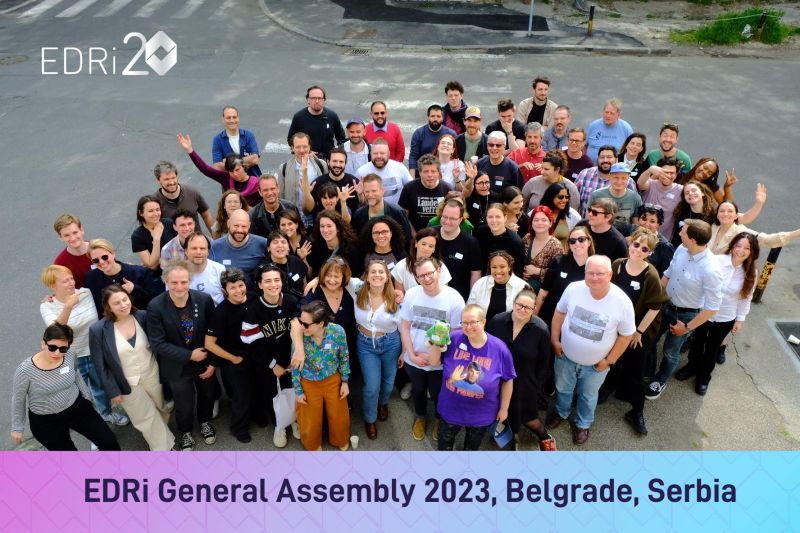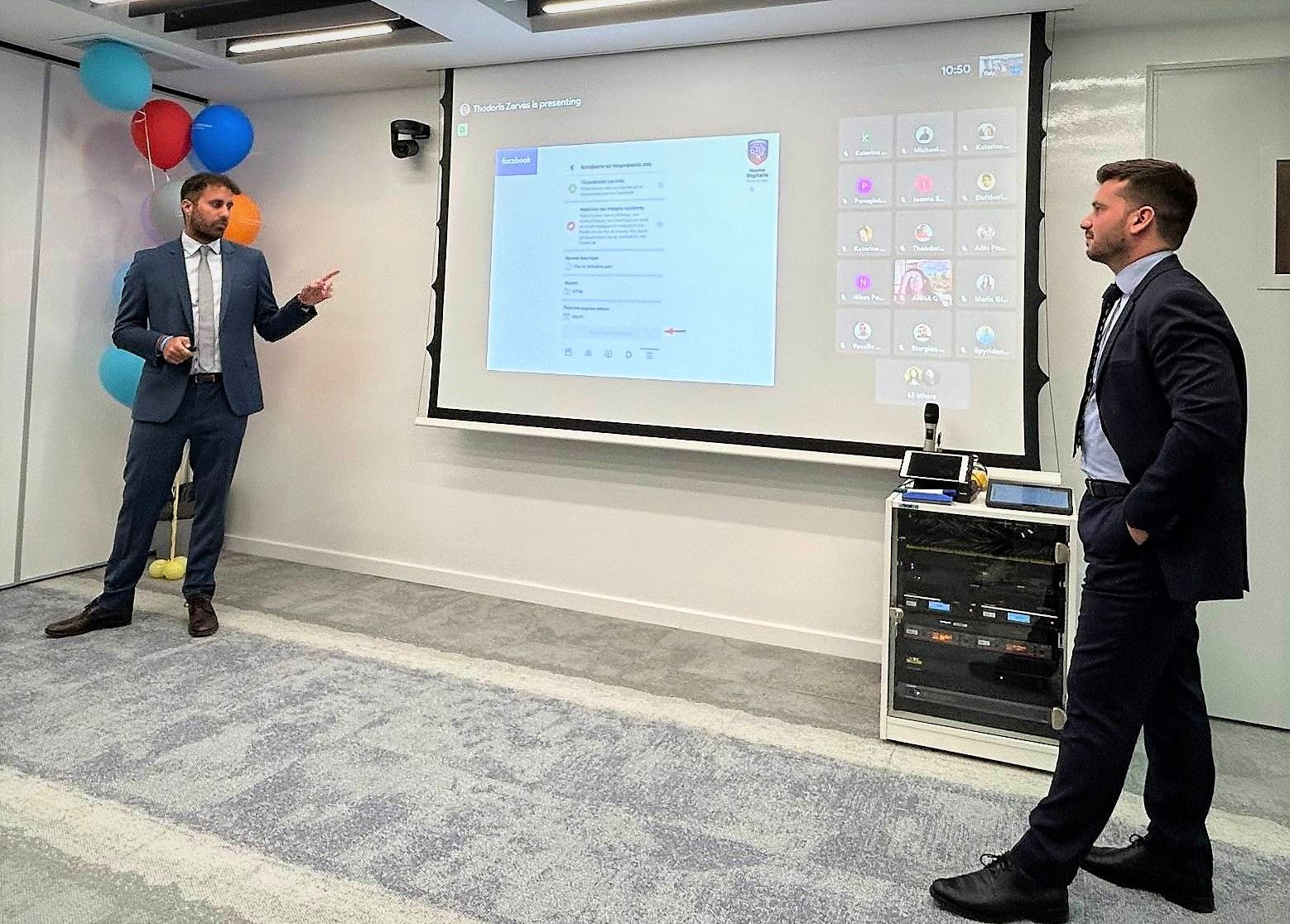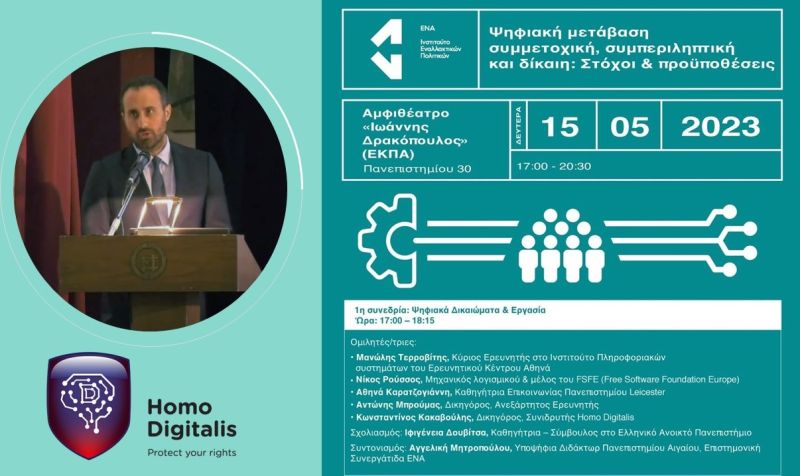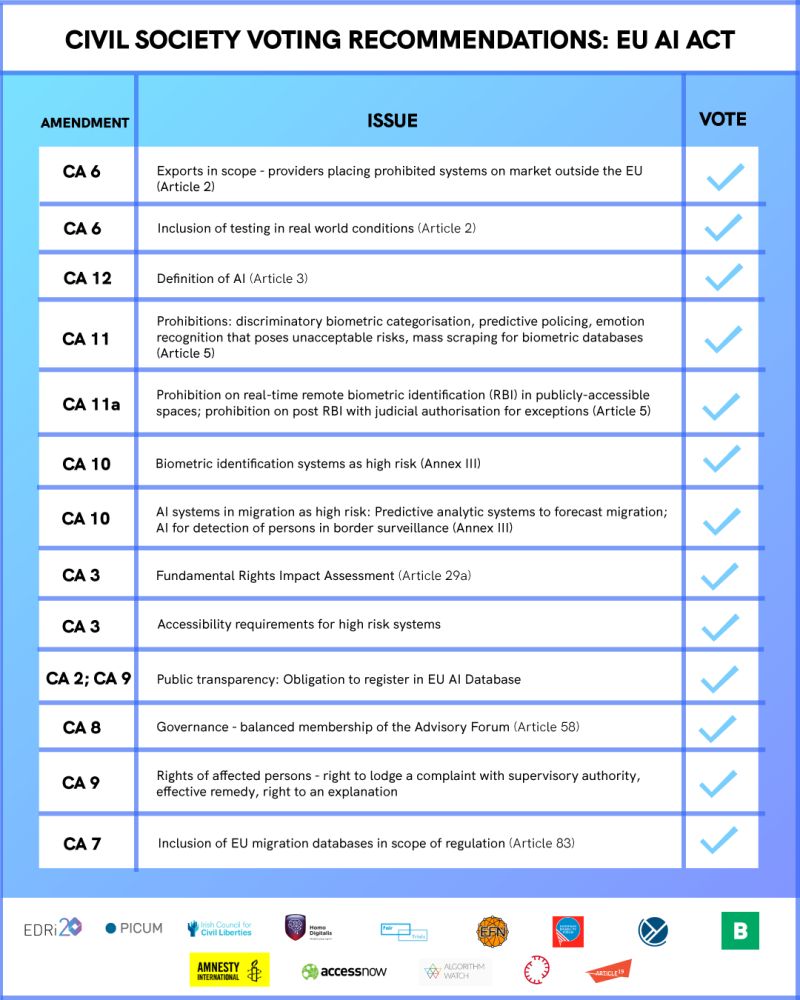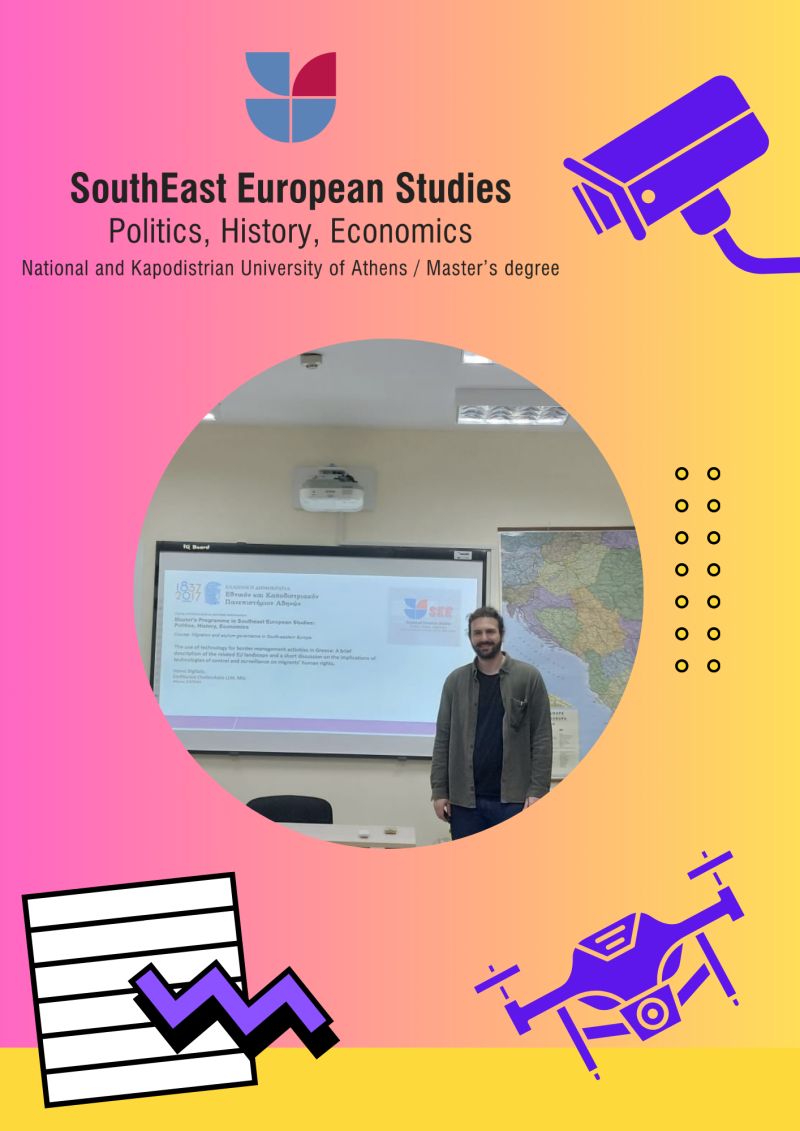Joint report with noyb on the implementation of GDPR
Tomorrow marks 5 years since GDPR came into force! Noyb.eu has prepared a feature on the challenges of implementing its provisions in many countries in Europe, with Homo Digitalis covering Greece!
In this feature we highlight how:
-Despite the high specialization of the scientific staff of the DPAA, it remains low paid and has limited human and financial resources,
This results in a significant impact on the speed of processing of the cases under examination, with long delays both in decision-making and even in their finalisation and publication!
In addition to Greece, the feature covers countries such as Austria, Belgium, France, Germany, Ireland, Spain, Italy, Luxembourg, the Netherlands, the Netherlands, Poland and Spain.
Many thanks to noyb.eu for the excellent cooperation!
The feature is available here:
We are talking at the CPDP for the 3rd time!
Homo Digitalis speaks for the third year at the CPDP Conference (Computers, Privacy and Data Protection Conference), the largest international conference on data protection and privacy in the modern digital age!
This year we are participating as speakers in the workshop organized by Vrije Universiteit Brussel entitled “The Right of Access to Police Databases”, in which representatives of important institutions such as EDPS – European Data Protection Supervisor, Europol and UCLouvain Saint-Louis Bruxelles are present alongside us! This is another important recognition of Homo Digitalis’ actions in this field at European level!
In the workshop session of Friday 26 May, we will be represented by our member and lawyer Stergios Konstantinou! We would like to thank the organizers for the invitation!
You can see the CPDP2023 programme and register here.
We were present at the EDRi GA for 2023!
On May 12-14, Homo Digitalis was in Belgrade to attend the annual General Assembly of European Digital Rights (EDRi), which was co-organized by the Share Foundation!
There we had the pleasure to be present at the elections that elected the new EDRi Board members, welcomed the new organizations that joined the network and discussed many important new actions and strategies in the field of digital rights protection!
Thank you very much for the unique hospitality and excellent organization!
Homo Digitalis was represented by our Board Secretary, Eleftherios Chelioudakis.
Our pro bono Educational Speech at Roche Hellas
On Thursday 11 May, Homo Digitalis had the pleasure of speaking to Roche Hellas staff about the “digital footprint” in the context of the Compliance Week organized by the company.
Such awareness raising initiatives are particularly important to raise the level of awareness about digital rights for all of us as citizens, internet users, consumers and employees.
We hope that other companies will follow the example of Roche Hellas! Thank you very much for the invitation, the participation and the interesting discussion.
Homo Digitalis was represented by its co-founders Konstantinos Kakavoulis and Stefanos Vitoratos.
We participate in an event of the ENA Institute for Alternative Policies at the Univeristy of Athens
Homo Digitalis participates in an event organised by the ENA Institute for Alternative Policies, Monday 15 May. The location of the event is the “Ioannis Drakopoulos” Amphitheatre at the National Kapodistrian University of Athens (EKPA).
Konstantinos Kakavoulis will represent Homo Digitalis in a panel on “Digital Rights & Work” The other speakers are:
-Manolis Terrovitis, Principal Researcher at the Institute of Information Systems of Athena Research Centre
-Nikos Roussos, Software Engineer & member of the Free Software Foundation Europe (FSFE)\.
-Athina Karatzogianni, Professor of Communication, University of Leicester
-Anthonios Broumas, Lawyer, Independent Researcher
The commentary is provided by Iphigenia Douvitsa, Professor – Consultant at the Hellenic Open University, while Angeliki Mitropoulou, PhD Candidate at the University of the Aegean, Research Associate at ENA
More information here.
The Hellenic Data Protection Authority is investigating the Greek Coast Guard for its social media monitoring software following Homo Digitalis request
In February 2022, the organizations Homo Digitalis, Privacy International, Hellenic League for Human Rights, and HIAS Greece, together with researcher Phoebus Simeonidis, had submitted a request to the President of the Hellenic Data Protection Authority (HPA) for the Authority to exercise its investigative powers regarding the supply of social media monitoring software and messaging application by the Coast Guard (more here).
Now, the DPA has officially informed us that it has long since launched the relevant investigative actions, has collected evidence from the Coast Guard Headquarters and is examining it in order to complete its assessment.
We recall that, as it appears from the DIAYGEIA portal already from the summer of 2022 the companies “BYTE S.A. – GRIVAS S.A.” have probably undertaken the delivery of the relevant project.
This is of course another important success for Civil Society organizations in Greece!
We would like to thank the scientific staff of the Hellenic Civil Society Foundation, which despite the challenges it faces with its intense workload and reduced financial and human resources, manages to continue its difficult mission.
We call on the IMCO & LIBE committees of the European Parliament to end biometric mass surveillance
Thursday (11/5) will be a landmark day for the protection of Human Rights, as the Internal Market and Consumer Protection Committee (IMCO) and the Civil Liberties, Justice and Home Affairs Committee (LIBE) of the European Parliament vote on the provisions of the proposed legislation on Artificial Intelligence (AI Act).
For more than 3 years now, the European Digital Rights network within the ReclaimYourFace campaign together with partners, including Homo Digitalis, have been actively advocating for a ban on mass biometric surveillance.
Today, we are one step closer to realising our demands and we call on Committee members to vote with the protection of everyone’s rights in mind!!
You can read more about our positions here.
Our Guest Lecture at a postgraduate course of National & Kapodistrian University of Athens
On Tuesday 2/5, Homo Digitalis participated with a guestlecture in the course “Migration and asylum governance in South-eastern Europe” of the English-language postgraduate programme “South-East European Studies: politics, history, economics” at the University of Athens. We would like to thank Professor Angeliki Dimitriadi for the kind and honorable invitation to participate in her course!
It was a unique feeling to see the great interest of the students in the activities of Homo Digitalis and our partners in the field of border management and their active participation in the discussion with questions! Awareness-raising activities like these remind us of the importance of developing fruitful partnerships between civil society and academic institutions!
We were represented at the guest lecture by the Secretary of the Board of Directors, Eleftherios Chelioudakis. We would also like to thank our member Asimina Koliniati who brought us in contact with the lecturer!
If you also have suggestions for joint awareness raising activities, you can contact us at “info@homodigitalis.gr”.
We express our concern about the introduction of a mechanism providing for direct payments from content providers and technology companies to major European telecom companies.
In February 2023, the European Commission presented a series of actions to transform the EU’s connectivity sector, including an exploratory consultation on the future of the connectivity sector and related infrastructure.
Today, 48 organisations, including Homo Digitalis, published a joint statement expressing our collective concern about calls at EU level for a mechanism to provide for significant direct payments (“network contribution”, “network fee”, “fair share”) from content providers and technology companies to large European telecoms companies.
We call on EU policy makers and Member States to resist the imposition of direct payment obligations in favour of the largest telecom operators! Six MEPs support our stand!
You can read our joint statement in English and the MEPs’ joint support here.
You can read the relevant EU Press Release here.


